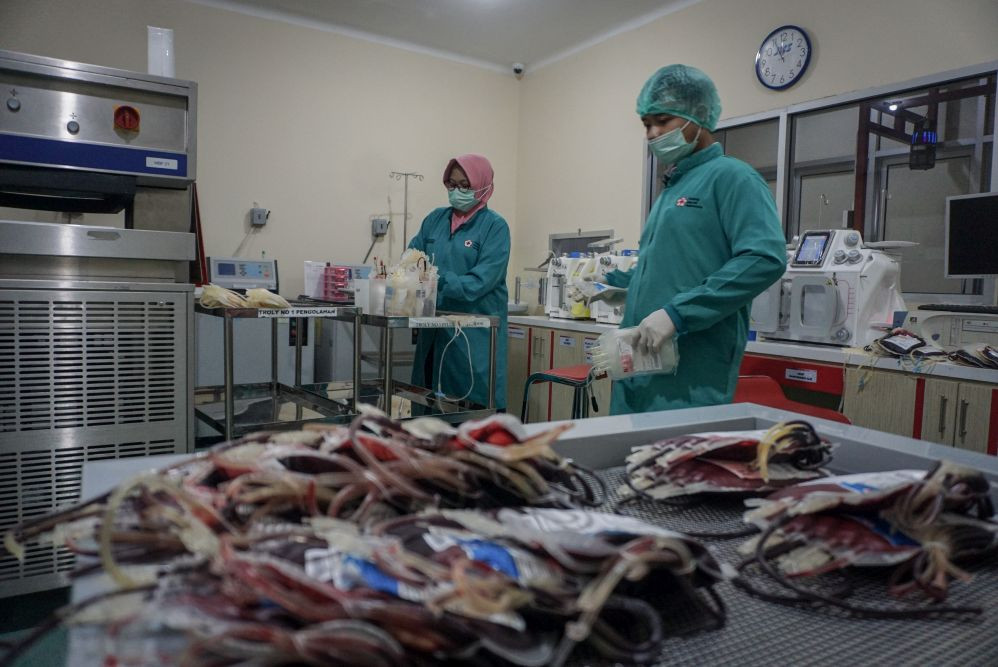Popular Reads
Top Results
Can't find what you're looking for?
View all search resultsPopular Reads
Top Results
Can't find what you're looking for?
View all search resultsIndonesia may need until 2022 to fully recover from COVID-19: Kalla
Change text size
Gift Premium Articles
to Anyone
Indonesian Red Cross (PMI) chief Jusuf Kalla says the COVID-19 pandemic may impact the country throughout next year.
“Indonesia will need time, possibly until 2022, to fully recover from the pandemic,” Kalla said in a statement on Saturday as quoted by antaranews.com.
He went on to say that his prediction was based on a list of contributing factors in Indonesia, such as the availability of vaccines by mid-2021, at the earliest, and the need for at least one year to vaccinate 70 percent of the population.
Furthermore, vaccine producers in China, Britain and the United States would likely prioritize the use of vaccines in their own countries before shipping them overseas, including to Indonesia, he added.
The former vice president said he believed that only vaccines could end the pandemic. In the meantime, vaccine clinical trials in Indonesia are set to finish by January and February 2021, with mass production scheduled to begin in March.
On that note, Kalla said the national vaccination program could only start in May or June 2021. If Indonesia applied a mass vaccination, it meant that at least 1 million people would receive injections on a daily basis, and it would take one year to get most people covered nationwide, he added.
Kalla said it would not be an easy task to vaccinate 1 million people per day, as indicated by the fact that Indonesia’s testing capacity only reached 30,000 specimens per day.
“I’d say the mass vaccination, which is expected to begin in mid-2021, could only be available for around 500,000 people a day,” he added.
Kalla said that, while the country waits for the vaccines, he had ordered all PMI volunteers to increase the intensity of disinfection to help stop COVID-19 transmission.
To support the future vaccination program, the PMI has also prepared 230 posts for blood donation nationwide.
Separately, PMI secretary-general Sudirman Said said the PMI should be one of the trusted institutions, from the national to global level, during the fight against the coronavirus.
“The PMI can only work based on public trust. Therefore, it is very important to maintain such trust,” Sudirman said last week.
Approaching the end of the year in Indonesia, where the La Nina weather pattern causes heavy rainfall across the archipelago until February, Sudirman said the PMI was focused on taking care of disaster shelters during the pandemic.
The heavy rainfall caused flooding in several parts of Indonesia, including Jakarta and West Java, since late September.
The COVID-19 task force spokesperson, Wiku Adisasmito, reminded the public, especially those affected by flooding, of the importance to adhere to health protocol while staying in temporary shelters, as they could potentially become infection clusters. (nkn)
Editor’s note: This article is part of a public campaign by the COVID-19 task force to raise people’s awareness about the pandemic.










